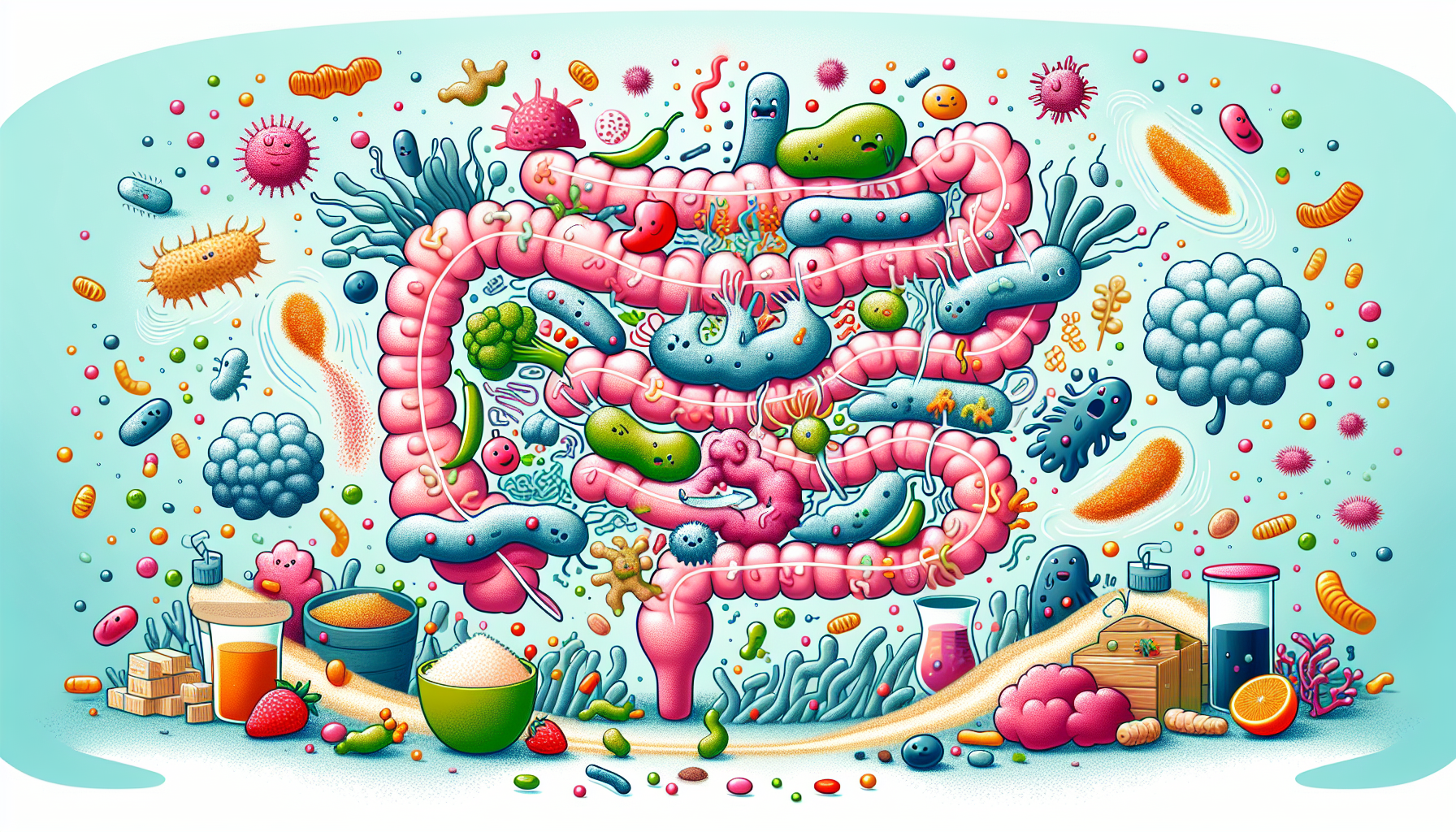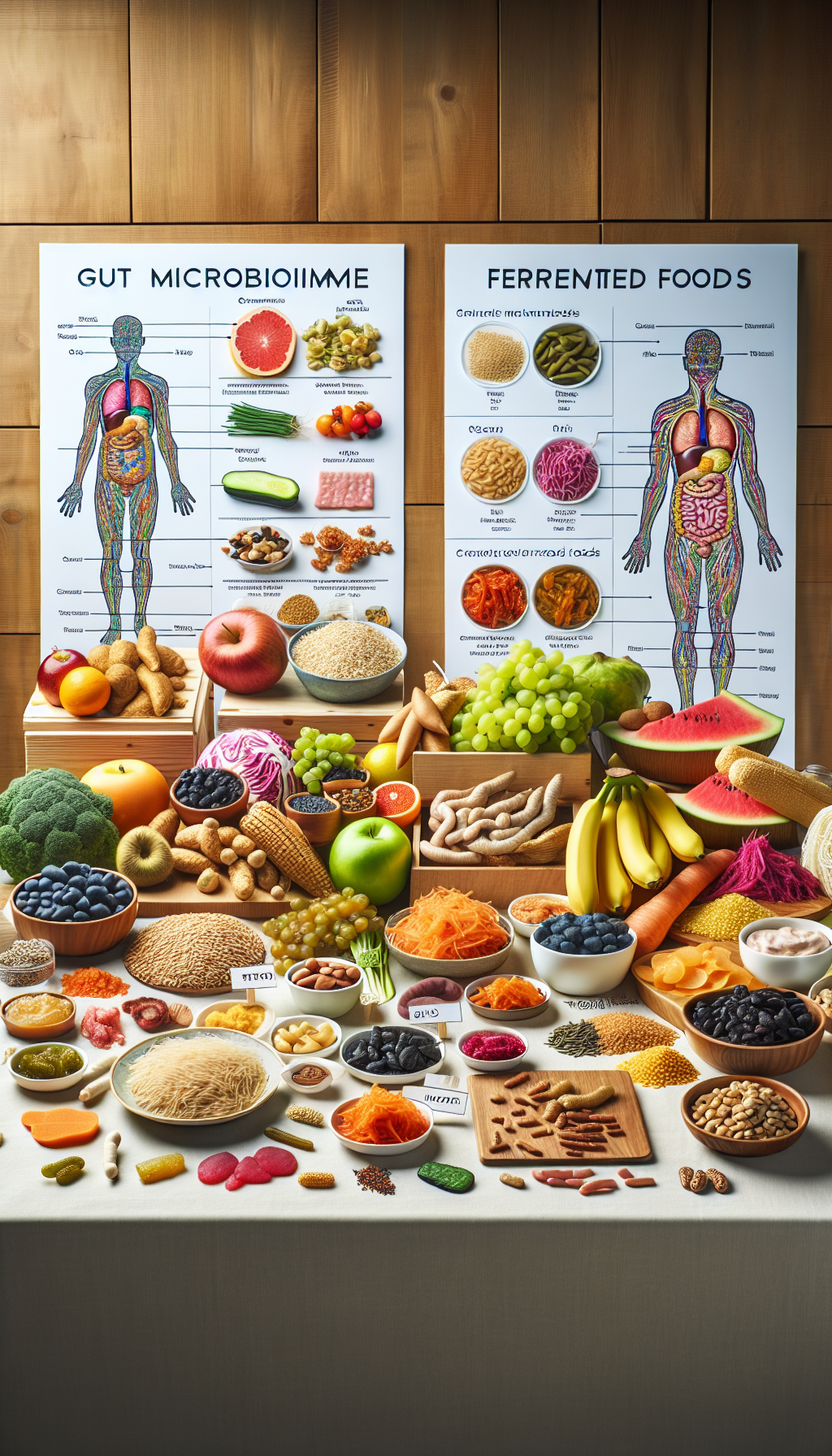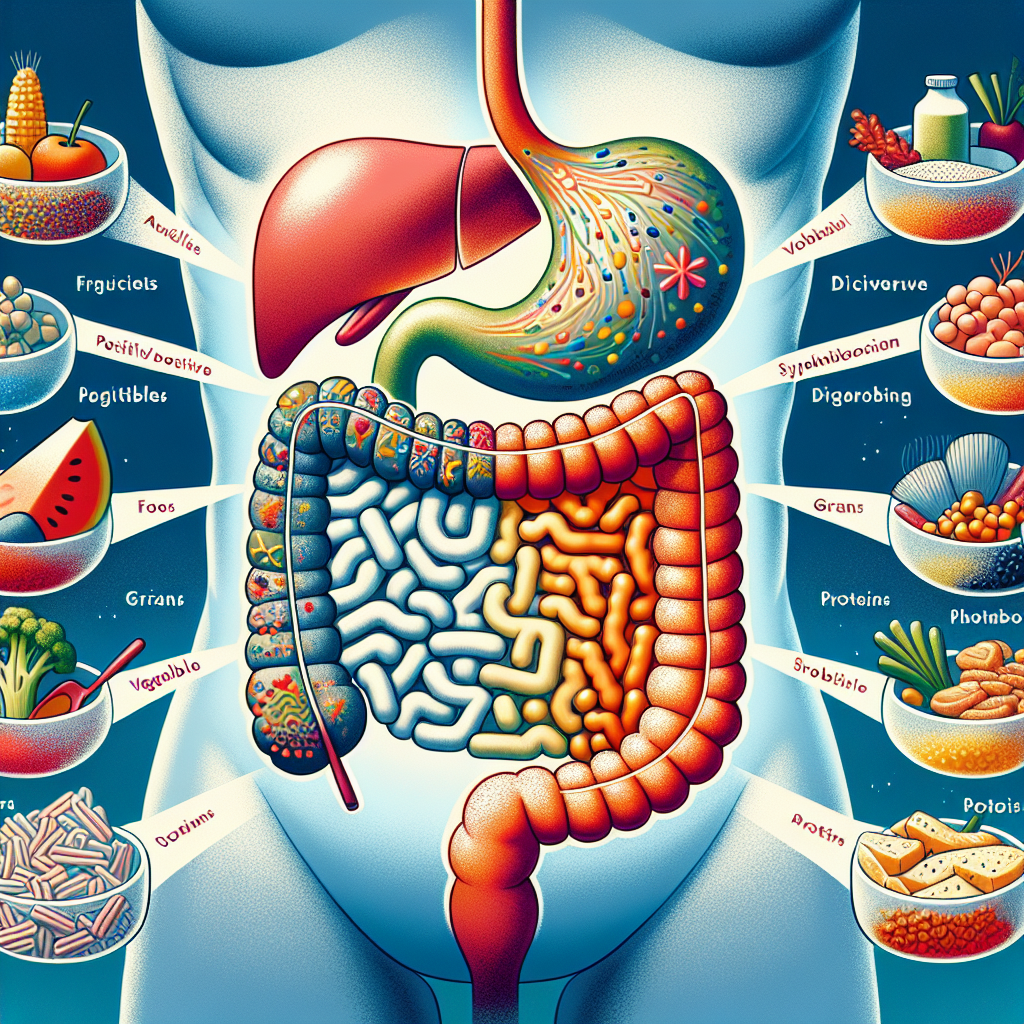The human gut microbiome is an intricate and dynamic ecosystem, composed of trillions of microorganisms that play a crucial role in our overall health. Recent scientific studies have brought to light the immense impact of dietary choices on the diversity and functionality of this microbial community. This article delves into how the foods we eat can shape our gut microbiota, thereby influencing digestive wellness and other health domains.
Gut Microbiome: The Foundation of Health
Our gut microbiome is a complex network of bacteria, fungi, viruses, and other microorganisms that reside in our gastrointestinal tract. It’s involved in numerous physiological processes, including digestion, vitamin production, and immune function. A diverse gut microbiome is associated with good health, while a lack of diversity can be linked to a range of health issues, from digestive health concerns to chronic diseases.
The Role of Diet in Microbiome Diversity
Diet is one of the most significant factors influencing the composition of the gut microbiome. What we consume can rapidly alter the microbiota, affecting its diversity and abundance. A diet rich in a variety of plant-based foods tends to promote a more diverse microbiome. This is because plant-based foods are high in fiber, which is not digested by human enzymes but can be fermented by gut bacteria, leading to the growth of beneficial microbial species.
Conversely, a diet high in processed foods, sugar, and saturated fat can reduce microbial diversity and encourage the growth of harmful bacteria. Such dietary patterns have been associated with an increased risk of inflammatory diseases, obesity, and metabolic syndrome.
Fiber: The Prebiotic Powerhouse
Fiber serves as a prebiotic, providing food for beneficial gut bacteria, particularly those that produce short-chain fatty acids (SCFAs) like butyrate, propionate, and acetate. These SCFAs have anti-inflammatory properties and are vital for colon health. Diets high in fiber from fruits, vegetables, whole grains, and legumes have been linked to increased microbiome diversity and better health outcomes. For further insights on the benefits of fiber, explore the article on Dietary Fiber and Digestive Health: The Undeniable Link.
Fermented Foods: Live Microbial Cultures
Fermented foods such as yogurt, kefir, sauerkraut, and kimchi are rich in probiotics—the live beneficial bacteria. Incorporating these foods into your diet can introduce new and beneficial microbial strains to your gut, enhancing its diversity and resilience. The connection between fermented foods and gut health is further discussed in the article How Fermented Foods Contribute to Gut Health.
Polyphenols: Plant-Based Nutrients
Polyphenols, found in foods like berries, nuts, seeds, olive oil, and green tea, are another group of nutrients that impact the microbiome positively. These plant-based compounds have antioxidant properties and can promote the growth of beneficial bacteria while inhibiting pathogenic ones. To understand more about the role of polyphenols and other antioxidants in gut health, the article The Role of Dietary Antioxidants in Gut Health offers valuable information.
External Resources Supporting Gut Microbiome Diversity
- Dietary Fiber—The Influencer of Gut Microbiota: A comprehensive study on how dietary fiber influences the composition and functionality of the gut microbiome.
- Polyphenols and Gut Microbiota Interplay: An in-depth review of the interactions between dietary polyphenols and the gut microbiota, highlighting the importance of these compounds in modulating gut health.
- Gut Microbiota Diversity and Human Diseases: This research article discusses the link between gut microbiota diversity and various human diseases, underscoring the significance of diet in maintaining a healthy microbiome.
- Probiotics and Gut Microbiota: An educational resource providing detailed insights into how probiotics shape the gut microbiota and their implications for human health.
- The Role of Short-Chain Fatty Acids in Health and Disease: A scientific review exploring the production of SCFAs by gut bacteria and their crucial role in maintaining gut and overall health.
Practical Tips for Enhancing Gut Microbiome Diversity
- Incorporate a Rainbow of Plants: Aim to eat a wide variety of colorful fruits and vegetables to ensure a broad spectrum of fibers and polyphenols.
- Choose Whole Grains: Select whole grains over refined grains to provide your gut microbes with complex carbohydrates to ferment.
- Add Fermented Foods: Introduce probiotic-rich fermented foods to your diet to support your gut microbial community.
- Limit Processed Foods: Reduce the intake of processed foods, which often contain additives that can be detrimental to gut bacteria.
- Stay Hydrated: Drinking plenty of water is essential for maintaining a healthy gut microbiome, as hydration can affect the gut’s mucosal lining.
Conclusion
The gut microbiome is a key player in our health, and dietary choices have a profound influence on its diversity and function. By making mindful food selections that favor microbiome diversity, we can support our digestive health and contribute positively to our overall well-being. While further research continues to unravel the complex interactions between diet and the gut microbiome, what remains clear is that a diverse diet rich in plant-based foods, fiber, polyphenols, and fermented products is beneficial for cultivating a healthy and diverse gut ecosystem.



